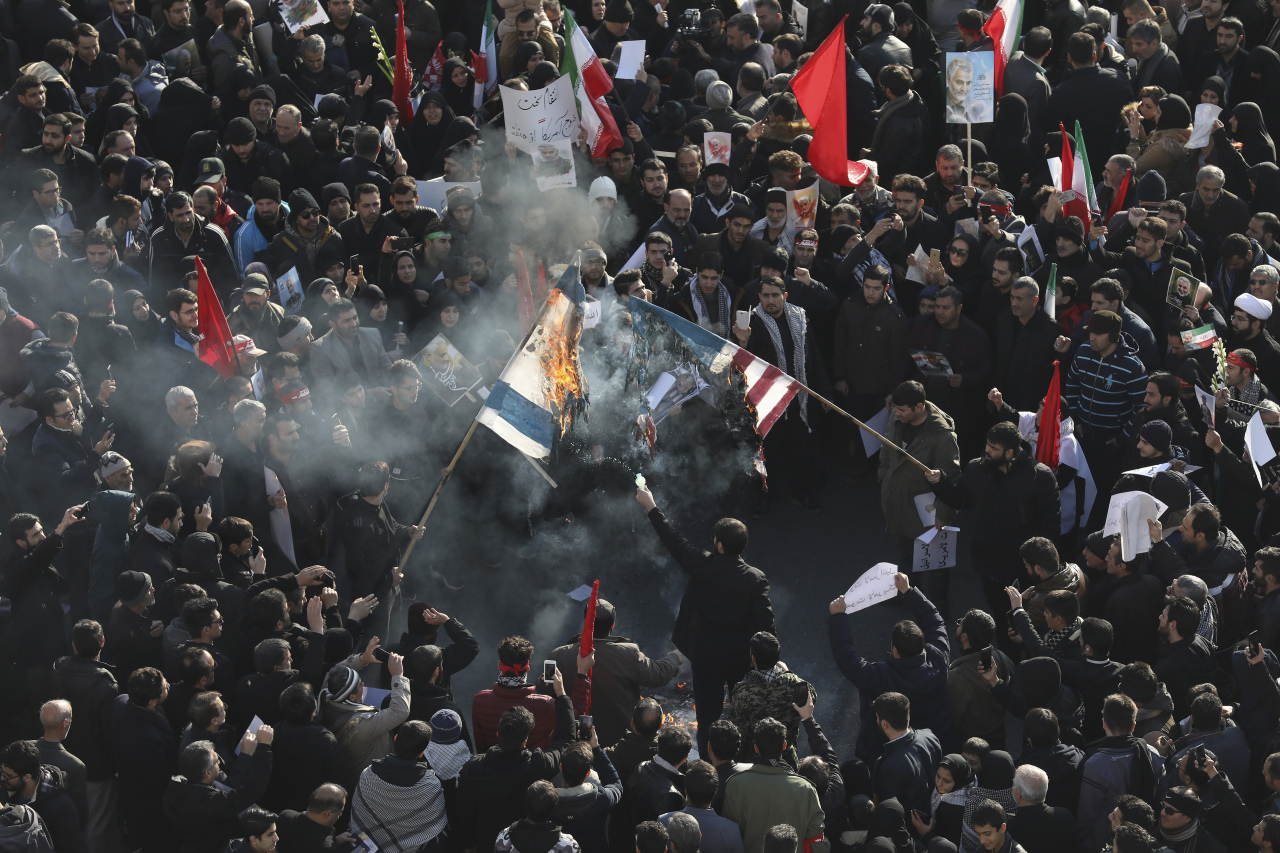What Iran crisis could mean for N. Korea
Experts mixed on further actions of North, but agree on dilution in US attention on Korean Peninsula
By Ahn Sung-miPublished : Jan. 6, 2020 - 16:20
Amid escalated tensions between the US and Iran, experts are mixed on how the situation in the Middle East will impact Washington’s military standoff with Pyongyang.
North Korea’s state-run Korea Central News Agency on Monday ran its first report on the recent US killing of Qassem Soleimani, Iran’s top military general, four days after the incident.
It said Soleimani was killed in a US missile attack in an airfield in Baghdad and quoted a phone conversation between Chinese Foreign Minister Wang Yi and his Russian counterpart Sergey Lavrov to condemn Washington.
North Korea’s state-run Korea Central News Agency on Monday ran its first report on the recent US killing of Qassem Soleimani, Iran’s top military general, four days after the incident.
It said Soleimani was killed in a US missile attack in an airfield in Baghdad and quoted a phone conversation between Chinese Foreign Minister Wang Yi and his Russian counterpart Sergey Lavrov to condemn Washington.

“China and Russia emphasized that they not only oppose abusing military forces in international relations, but also cannot tolerate adventurous military acts,” said KCNA, referring to Wang and Lavrov’s conversation earlier Saturday. “They expressed concerns over the worsened regional situation due to the US’ illegal acts.”
Despite the absence of an official statement from the North, Pyongyang watchers say Kim Jong-un’s regime is being careful about openly stating its position, while referring to China and Russia’s stance to criticize the US.
South Korea’s former Unification Minister Jeong Se-hyun dismissed the possibility of a similar US strike on North Korea’s top leadership, while appearing on TV on Sunday.
“(For the US), the message is that (the North) should not launch a military provocation and fire missiles, as it has threatened (the US).”
He added that while the North hasn’t disclosed Kim’s whereabouts in the past, the regime will be more careful in the future.
Other experts viewed that while the US is putting its full attention on Iran, North Korea could use the time to further step up provocations.
“Due to the latest situation in Iran, It’s true that North’s Kim will be pressured psychologically,” Yang Moo-jin, a professor at Seoul’s University of North Korean Studies, told The Korea Herald.
“But there is a possibility that it will use this situation to wage propaganda saying the North’s decision on ‘frontal breakthrough’ was right, and prepare for a long-term standoff. The North had warned of a ‘strategic weapon’ test before the Iranian situation, so it is expected to carry it out, following the US’ reaction.”
Robert Gallucci, a former US nuclear negotiator, told Radio Free Asia that he is concerned the North will do “something they have never done,” such as launch an intercontinental ballistic missile, as it could conclude that the US will not get involved in two conflicts at the same time.
On Monday, South Korea’s Cheong Wa Dae convened the National Security Council in the afternoon to discuss issues related to the current Iran crisis, reviewing security conditions, the safety of South Koreans in the region and its oil supply.
The Defense Ministry said it was working with the international community to swiftly respond to any contingencies related to the safety of Koreans in the Middle East amid simmering tensions between the US and Iran.
“The government is closely watching developments in the Middle East regarding the incident between the US and Iran. In order to swiftly respond to contingencies related to the safety of our people, we will closely cooperate with the international community,” Defense Ministry spokesperson Choi Hyun-soo said at a regular briefing.
On Friday, the US confirmed President Donald Trump authorized the targeted drone strike that killed Iran’s revered military leader, renewing tensions between Washington and Tehran that reached new heights, after months of trading attacks and threats. Iran has pledged “harsh revenge” in response, while Trump has threatened to strike 52 Iranian sites, including cultural assets, if Tehran retaliates.
North Korea, which is aware of the escalating US-Iranian conflict, however, has not toned down its nuclear and military ambition in the new year, while stressing a “frontal breakthrough” as part of Pyongyang’s new slogan. On Sunday, it said North Korea must employ the frontal breakthrough strategy through self-reliance and weapons development, and not depend on the US to ease sanctions, in an editorial carried by the Rodong Sinmun, the official newspaper of the North’s ruling Workers’ Party.
“Now that we know the real intentions of the US, there is no need to hesitate with any expectations of the lifting of sanctions,” it said.
The North’s propaganda outlet Meari on Sunday ran an article with the headline “Military experts expect Middle East will become US’ graveyard,” saying the US is being bogged down in war in that region.
By Ahn Sung-mi (sahn@heraldcorp.com)







![[KH Explains] How should Korea adjust its trade defenses against Chinese EVs?](http://res.heraldm.com/phpwas/restmb_idxmake.php?idx=644&simg=/content/image/2024/04/15/20240415050562_0.jpg&u=20240415144419)











![[Today’s K-pop] Stray Kids to return soon: report](http://res.heraldm.com/phpwas/restmb_idxmake.php?idx=642&simg=/content/image/2024/04/16/20240416050713_0.jpg&u=)